EGST was jointly founded in 1997 by the Ethiopian Kale Heywet Church (EKHC), the Ethiopian Evangelical Church Mekane Yesus (EECMY) and the Evangelical Churches Fellowship of Ethiopia (ECFE). Together, they represent virtually all of the Protestant evangelical churches in Ethiopia. This joint ownership is an excellent example of partnership and cooperation in Ethiopia by brining ecumenical diversity into unity. EGST is registered in Ethiopia according to Proclamation Number 691/2003 by the Ministry of Federal Affairs to serve church and society with the objectives of teaching, research and community outreach services in Ethiopia and beyond.
EGST is fully accredited by the Association for Christian Theological Education in Africa (ACTEA) which recognizes the relevance and teaching standards of EGST’s programmes as well as the overall administration and resources of the school. EGST’s graduate programs are also validated by the prestigious Vrije Universiteit of Amsterdam. In order to further strengthen its standards and improve its efficiency and effectiveness, EGST is partnering with other reputable international universities and research institutions.

Governance and Management
EGST is governed by a constitution and bylaws and overseen by the Council of Owners and Board comprised of EECMY (40%), EKHC (40%) and ECFE (20%), to whom the administration of EGST is fully accountable.
Day-to-day academic and administrative management is under the Faculty Council and Administration Council chaired by the Director. The main administration units are headed up by the Heads of Academic Affairs, Administration and Finance, Development and Communications and Student Affairs.EGST has had four directors: Dr Peter Cotterell, former Principal of London School of Theology and EGST’s founding director from 1997 to 1999. He was succeeded by Rev Dr Debela Birri who retired at the end of 2007. Succession passed to Dr Desta Heliso who completed his term at the end of 2015 and was succeeded by Dr Misgana Mathewos in January 2016.
The founding vision was born within the Mekane Yesus Seminary (MYS) of EECMY and the Evangelical Theological College (ETC) of EKHC, but the growing need for contextually relevant and affordable graduate level theological education in Ethiopia was perceived within all evangelical churches in the country. So the involvement of the Evangelical Churches Fellowship of Ethiopia (ECFE) was deemed essential in order to facilitate the sharing of the school by the other evangelical churches of Ethiopia. The leaders believed that the constitutional right to freedom of religion and the remarkable growth of churches in Ethiopia provided an unprecedented opportunity to impact society through leadership and scholarship that are creative, biblical, contextually relevant and thoroughly informed by a transforming vision of God’s purpose in and for the world. It was this vision that led to the establishment of EGST and which continues to drive EGST forward today.

1996
On June 17, 1996, 29 leaders representing the Mekane Yesus Seminary, the Evangelical Theological College and the Evangelical Churches Fellowship of Ethiopia signed commitment towards the establishment of a graduate school of theology.
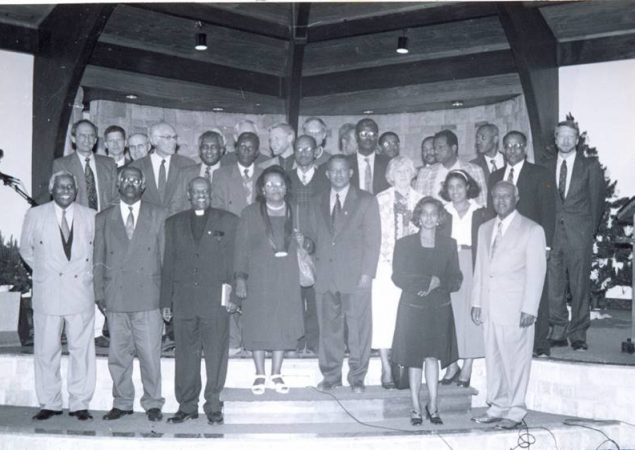
1997
The first post graduate theological institution in the Horn of Africa, the Ethiopian Graduate School of Theology, was dedicated on 14 February 1997.
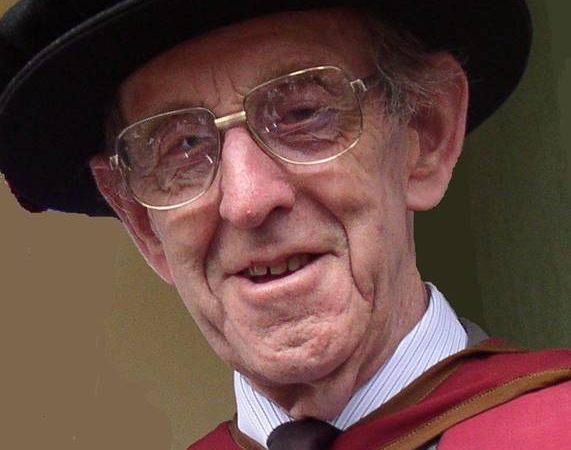
1997
The founding director, Dr. Peter Cotterell was appointed in May, 1997.
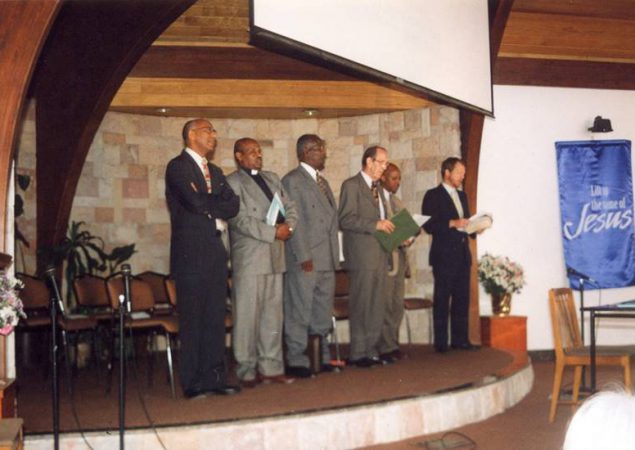
1998
On 14 February 1998, EGST was officially dedicated as a joint Graduate School of Theology.
Dr. Peter Cotterell, the founding director, emphasized the uniqueness and wonder of the spirit of cooperation and unity between the two major evangelical denominations in Ethiopia and their respective undergraduate theological colleges, that allowed EGST to rise up and be a symbol of how much more can be achieved together than alone.
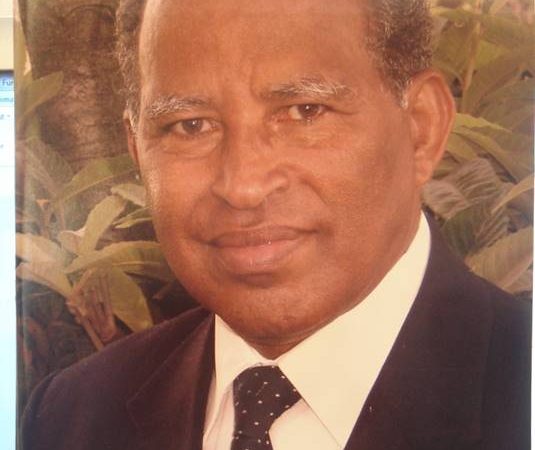
2000
In 2000, Reverend Dr. Debela Birri, was installed as the second director of EGST. His time of directorship, 2000 – 2007, is generally referred to as a period of establishment and organization of EGST.
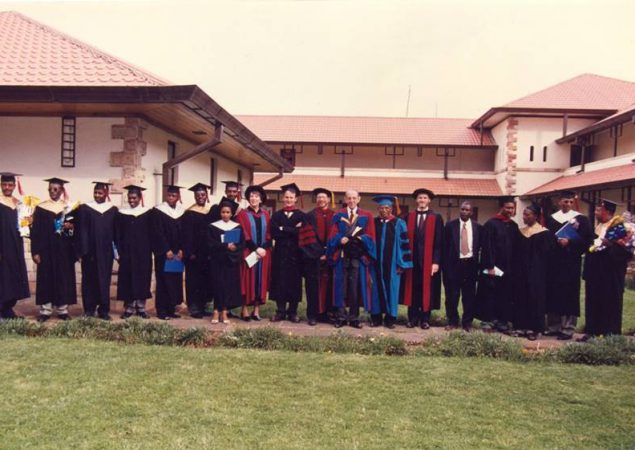
2001
Having started with 15 students by offering courses in systematic theology in 1998, EGST graduated its first batch in June 2001. A total of 12 students graduated – six in Master of Arts in Biblical and Theological Studies and six in Master of Theology.
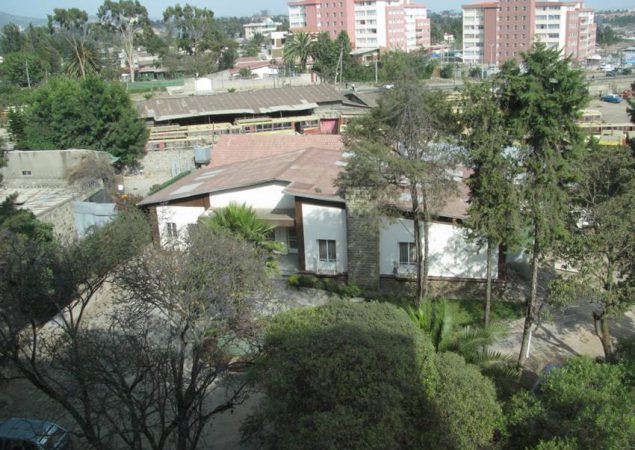
2003
EGST dedicated its first campus together with the third graduation in June 2003. before owning its own campus, EGST operated in rented offices and classes were being held at ETC and MYTS.
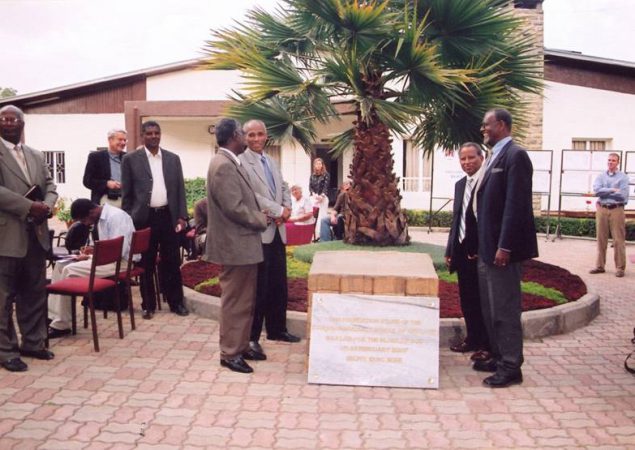
2007
The Ground breaking of the Phase I building project.

2007
The first Faculty Development Plan was launched to realize 70% Ethiopian teaching staff in 10 years.
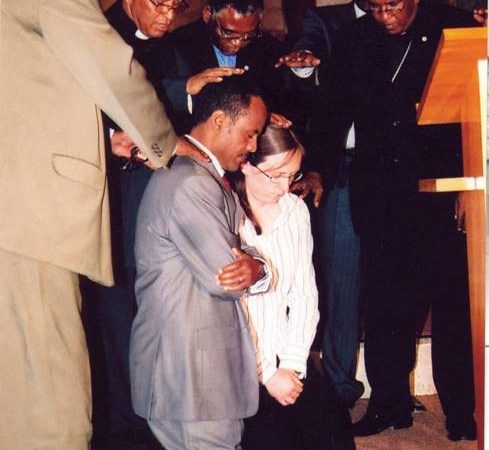
2008
On 1 January 2008, Dr. Desta Heliso was installed as the third director of EGST.
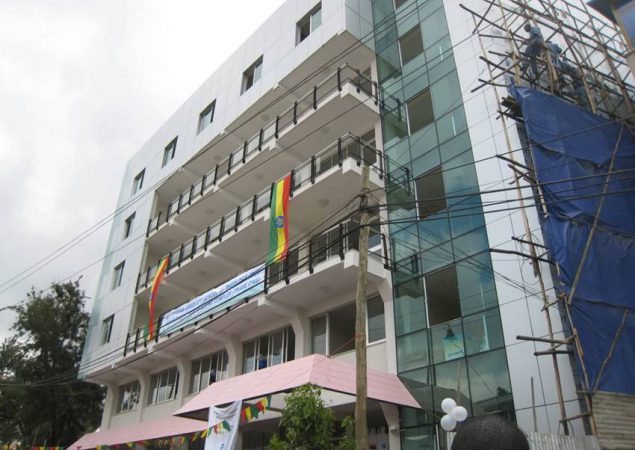
2009
The Phase I Campus Development was inaugurated.
2010
EGST got fully accredited by the Association for Christian Theological Education in Africa (ACTEA)
EGST accredited by ACTEA
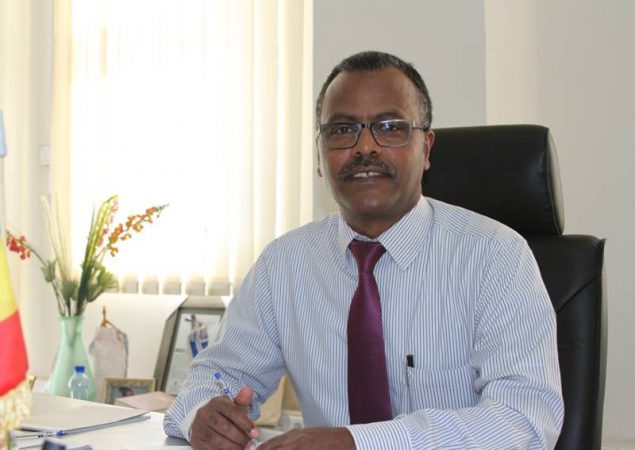
2012
Dr. Desta Heliso got re-installed for second term of second term of directorship
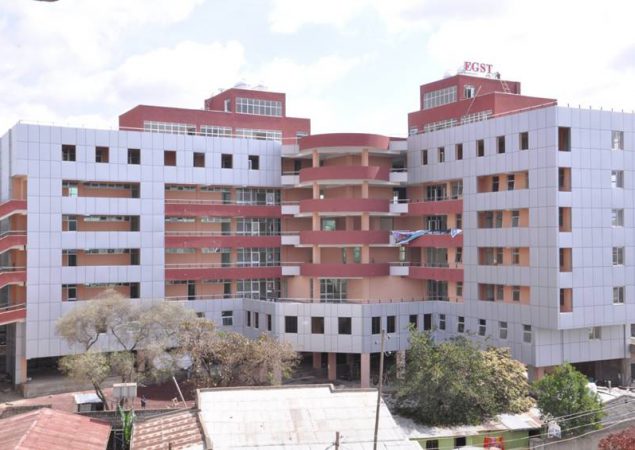
2014
The Phase II Campus Development building was inaugurated and dedicated on 14 March 2014.
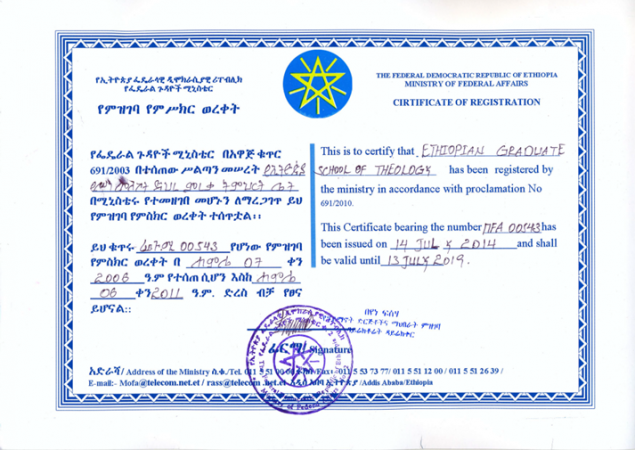
2014
In August 2014, EGST acquired legal registration from the Ministry of Federal Affairs.

2015
Dr. Misgana Mathewos was installed as the fourth director of EGST.
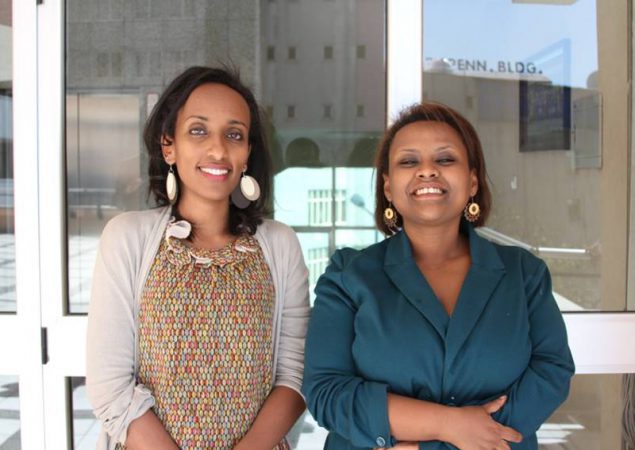
2016
Two of the Female Faculty Development Plan Candidates, Sofanit Tamene and Meron Tekleberhan, went for PhD.
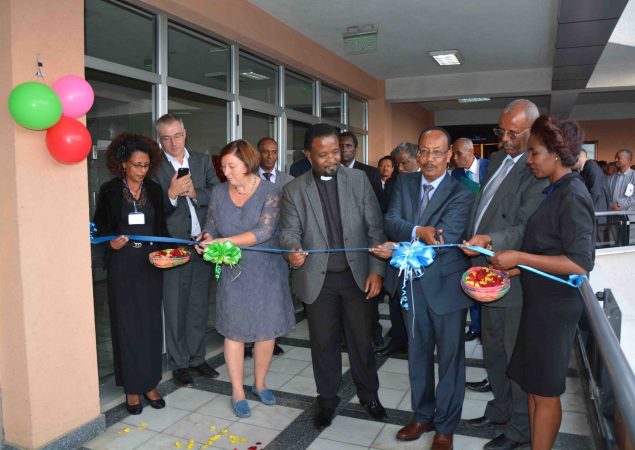
2017
On 7 October 2017, the EGST-VU joint PhD Programme was launched.
